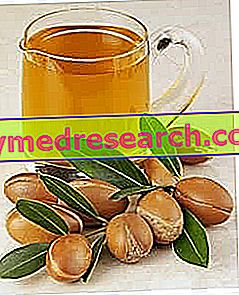
Scientific name
Astragalus membranaceus, sin. Phaca membranaceaFamily
LeguminosaeOrigin
ChinaUsed Parts
The root drug.Chemical constituents
- Saponins (astragalosides);
- Triterpene glycosides;
- Isoflavones (calicosine and formonoletin);
- sterols;
- Amino acids;
- Fatty acids;
- Biogenic amines (betaine, choline, GABA);
- Polysaccharides (astragaloglucans and astragalans)
Astragalus in Herbal Medicine: Property of the Astragalus
Astragalus is used as a natural remedy against colds and flu. The immunostimulant properties relating, in particular, to the polysaccharides present have been confirmed.
Astragalus is indicated in the treatment and prevention of infectious diseases, especially viral diseases, colds and flu syndromes, as well as a complementary therapy in neoplastic diseases (reduces cytostatic immunosuppression).
Biological activity
Astragalus is a plant to which numerous properties are attributed, among which we recall those immunostimulants, antioxidants, antiviral, fibrinolytic and hepatoprotective.
In particular, these properties seem to be developed above all by polysaccharides and saponins contained within the plant itself.
The immunostimulatory activity of astragalus has been confirmed by several studies conducted on the subject, which showed that this action is carried out through different mechanisms, such as: the increase in the proliferation of B lymphocytes; increased synthesis of interleukins and tumor necrosis factor by macrophages and increased T lymphocyte activity.
Furthermore, some studies have shown that the administration of astragalus in patients subjected to antineoplastic chemotherapy - thanks to the immunostimulatory activity performed by it - is able both to increase the efficacy of antitumor therapy, and to reduce its toxic effects.
Another research carried out, on the other hand, has shown that astragalus is able to inhibit the replication of Coxsackie B virus, an enterovirus capable of causing myocarditis and pericarditis in humans.
Also the fibrinolytic activity of astragalus has been confirmed by a study that has shown how the astragaloside contained in the plant is able to favor the dissolution of blood clots, through a mechanism of action that foresees the increase of the synthesis of the tissue plasminogen activator by endothelial cells.
The antioxidant action of astragalus, on the other hand, appears to be performed through the inhibition of lipid peroxidation. While another research has highlighted the plant's ability to protect hepatocytes from damage caused by external toxic agents (such as, for example, carbon tetrachloride).
Finally, another interesting study has shown that the administration of astragalus - in association with Pyrola rotundifolia - can play a protective role against cochlear damage induced by the antibiotic gentamicin.
Astragalus in folk medicine and homeopathy
In folk medicine, astragalus is used to treat viral infections, acute myocarditis of viral origin, heart failure, liver and kidney disorders. Furthermore, astragalus is used by traditional medicine also as a diuretic remedy and as a remedy to increase the immune system.
Chinese medicine, on the other hand, uses the plant - both alone and in association with other medicinal plants - for the treatment of various disorders, such as viral myocarditis, heart failure, amenorrhea, liver fibrosis and even for the treatment of lung cancer in small cells. Furthermore, Chinese medicine also uses astragalus as a tonic and antiviral remedy.
As far as homeopathic medicine is concerned, at the moment astragalus does not find significant uses in this area.
Side effects
In rare cases, following the use of astragalus, hypotensive episodes have been reported accompanied by fatigue and dizziness.
Contraindications
As a precaution, it is not recommended to administer astragalus during pregnancy or while breastfeeding.
Pharmacological Interactions
Astragalus could establish drug interactions with antiplatelet drugs, thrombolytic agents and low molecular weight heparins. In fact, following the concomitant administration of astragalus and the aforementioned drugs an increased risk of bleeding may occur.
Warnings
Astragalus should be used with extreme caution in patients who have undergone organ transplants and are being treated with immunosuppressive drugs. However, in these cases, it is essential to seek medical advice.



